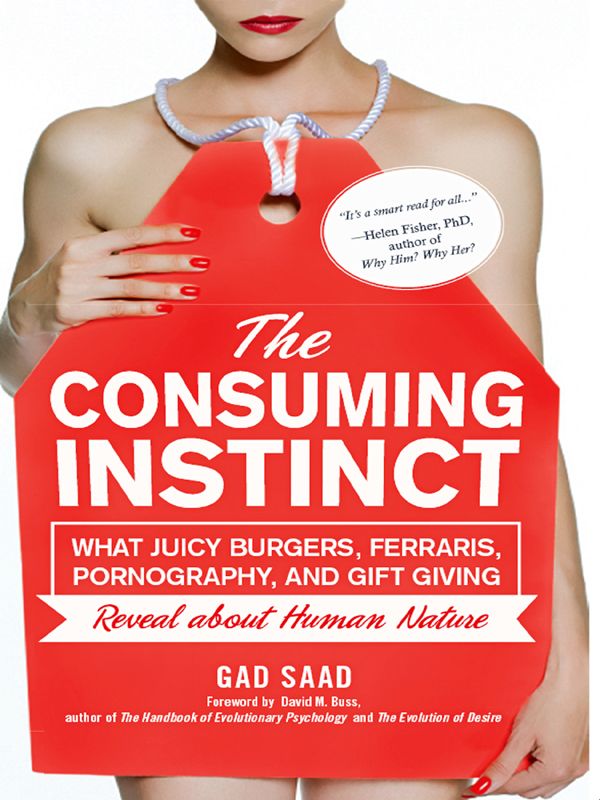Journal of Personality and Social Psychology 95, no. 5 (2008): 1150-64.
38 . Рассел А. Хилл и Роберт А. Бартон, "Красный цвет повышает производительность человека в соревнованиях", Nature 435 (19 мая 2005 г.): 293.
39 . Thore J. Bergman, Lucy Ho, and Jacinta C. Beehner, "Chest Color and Social Status in Male Geladas (Theropithecus gelada)," International Journal of Primatology 30, no. 6 (2009): 791-806.
ГЛАВА 8. МАРКЕТИНГ НАДЕЖДЫ ПУТЕМ ПРОДАЖИ ЛЖИ
1 . http://www.quotegarden.com/hope.html (accessed April 10, 2010).
2 . Кэти Пайс, "Надежда в банке: The Making of America's Beauty Culture (New York: Metropolitan Books, 1998).
3 . Мара Эйнштейн, Бренды веры: Marketing Religion in a Commercial Age (New York: Routledge, 2008), p. 92.
4 . Anthony Scioli et al., "A Prospective Study of Hope, Optimism, and Health," Psychological Reports 81 (1997): 723-33; Laura D. Kubzansky et al., "Is the Glass Half Empty or Half Full? A Prospective Study of Optimism and Coronary Heart Disease in the Normative Aging Study," Psychosomatic Medicine 63 (2001): 910-16; Martin E. P. Seligman, Learned Optimism: How to Change Your Mind and Your Life (New York: Pocket Books, 1998).
5 . Например, Adbusters Media Foundation, www.adbusters.org; American Legacy Foundation, http://www.thetruth.com.
6 . Все последние статистические данные приведены в Einstein, Brands of Faith, pp. 1,41, 29-30, 53 и 40.
7 . Из недавних книг, в которых религия рассматривается как продукт, который брендируется, рекламируется и в конечном итоге потребляется, см. Mara Einstein, Brands of Faith: Marketing Religion in a Commercial Age (New York: Routledge, 2008); Phil Cooke, Branding Faith: Why Some Churches and Nonprofits Impact Culture and Others Don't (Ventura, CA: Regal Books, 2008); James B. Twitchell, Shopping for God: How Christianity Went from In Your Heart to In Your Face (New York: Simon & Schuster, 2007); Vincent J. Miller, Consuming Religion: Religious Beliefand Practice in a Consumer Culture (New York: Continuum, 2003); и Tom Beaudoin, Consuming Faith: Integrating Who We Are with What We Buy (Lanham, MD: Sheed & Ward, 2007).
8 . Леон Урис, "Хадж" (Нью-Йорк: Bantam Books, 1985), с. 14.
9 . Роберт М. Сапольски, "Почему зебры не болеют язвами" (Нью-Йорк: Генри Холт, 2004).
10 . Майкл Шермер, Почему люди верят в странные вещи: Pseudoscience, Superstition, and Other Confusions of Our Time (New York: Henry Holt, 2002).
11 . Обзор эволюционных корней религии см. в Pascal Boyer and Brian Bergstrom, "Evolutionary Perspectives on Religion," Annual Review of Anthropology 37 (2008): 111-30; Ilkka Pyysiäinen and Marc Hauser, "The Origins of Religion: Evolved Adaptation or By-Product?". Trends in Cognitive Sciences 14, no. 3 (2010): 104-109.
12 . См. Richard Lynn, John Harvey, and Helmuth Nyborg, "Average Intelligence Predicts Atheism Rates Across 137 Nations," Intelligence 37 (2009): 11-15, и ссылки на них.
13 . Лиза М. Фэйрфакс, "Тонкая грань между любовью и ненавистью: почему мошенничество с ценными бумагами и инвестициями, основанное на родстве, является преступлением на почве ненависти", UCDavis Law Review 36, no. 5 (2003): 1073-1143.
14 . Дэвид Б. Барретт, Джордж Т. Куриан и Тодд М. Джонсон, редакторы, Всемирная христианская энциклопедия: Сравнительный обзор церквей и религий в современном мире (2 тома) (Нью-Йорк: Оксфорд Юниверсити Пресс, 2001).
15 . Richard L. Nahin et al., "Costs of Complementary and Alternative Medicine (CAM) and Frequency of Visits to CAM Practitioners: United States, 2007," National Health Statistics Reports 18 (July 30, 2009); доступно по адресу http://nccam.nih.gov/news/camstats/costs/nhsrn 18.pdf.
16 . Роберт Л. Браттон и др., "Эффект ионизированных браслетов на запястье на боли в опорно-двигательном аппарате: рандомизированное, двойное слепое, плацебо-контролируемое испытание", Mayo Clinic Proceedings 77, № 11 (2002): 1164-68.
17 . См. также Стивен Барретт и Уильям Т. Джарвис, изд-во "Грабители здоровья: A Close Look at Quackery in America (Amherst, NY: Prometheus Books, 1993).
18 . Andrew Tobias, Fire and Ice: The Story of Charles Revson, the Man Who Built the Revlon Empire (New York: Quill, 1983), chap. 8 эпиграф.
19 . Judith H. Langlois et al., "Maxims or Myths of Beauty? A Meta-Ana-lytic and Theoretical Review," Psychological Bulletin 126, no. 3 (2000): 390-423; Джиллиан Родс и др., "Привлекательность усредненности и симметрии лица в незападных культурах: В поисках биологически обоснованных стандартов красоты", Восприятие 30 (2001): 611-25; Nancy Etcoff, Survival of the Prettiest: The Science of Beauty (New York: Doubleday, 1999).
20 . Alan Slater et al., "Newborn Infants Prefer Attractive Faces," Infant Behavior & Development 21, no. 2 (1998): 345-54. Judith H. Langlois, Lori A. Roggman, and Loretta A. Reiser-Danner, "Infants' Differential Social Responses to Attractive and Unattractive Faces," Developmental Psychology 26, no. 1 (1990): 153-59.
21 . Ицхак Аарон и др., "Красивые лица имеют переменную ценность вознаграждения: фМРТ и поведенческие доказательства", Нейрон 32 (2001): 537-51.
22 . Метте Бовин, "Кочевники, которые культивируют красоту: Wodaabe Dances and Visual Arts in Niger (Uppsala, Sweden: Nordiska Afrikainstitutet, 2001).
23 . Steve Salerno, Sham: How the Self-Help Movement Made American Helpless (New York: Crown Publishing Group, 2005), p. 8.
24 . Там же.
25 . Там же, стр. 86.
26 . Griet Vandermassen, "Women's Evolutionary Enigmas," book review of David P. Barash and Judith Eve Lipton, How Women Got Their Curves and Other Just-So Stories, Evolutionary Psychology 7, no. 4 (2009): 530.
27 . См. Национальная ассоциация по продвижению принятия жира (NAAFA), http://www.naafaonline.com.
28 . Ричард П. Фейнман, "Характер физических законов" (Нью-Йорк: Random House, 1994 [1965]), с. 123.
ГЛАВА 9. ДАРВИНОВСКОЕ ОБОСНОВАНИЕ
ИРРАЦИОНАЛЬНОСТИ ПОТРЕБИТЕЛЕЙ
1 . Скотт Адамс, "Принцип Дилберта": A Cubicle's-Eye View of Bosses, Meetings, Management Fads, & Other Workplace Afflictions (London: Boxtree, 1996), p. 76.
2 . Альберт Эллис, http://www.great-quotes.com/quote/1410828 (дата обращения: 18 апреля 2010 г.).
3 . Многие ученые и аналитики утверждают, что видимость иррациональности иногда может оказаться рациональной стратегией, особенно в контексте военного конфликта. Например, Herman Kahn, On Thermonuclear War (Princeton, NJ: Princeton University Press, 1960), и Thomas C. Schelling, Arms and Influence (New Haven, CT: Yale University Press, 1966).
4 . Опровержение этой предпосылки см. в статье Gad Saad, "Blame Our Evolved Gustatory Preferences," Young Consumers 7, no. 4 (2006): 72-75.
5 . Гад Саад и Альберт Пенг, "Применение дарвиновских принципов при разработке эффективных стратегий вмешательства: На примере загара", Psychology & Marketing 23 (2006): 617-38.




